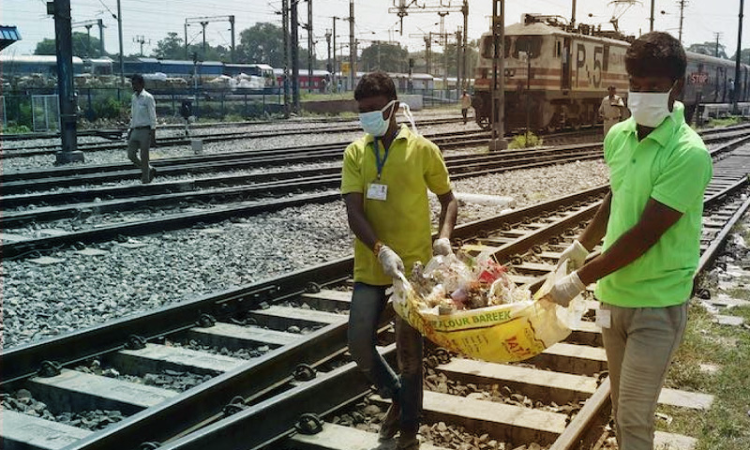Community Service Not A Valid Bail Condition
Ravi Singh Chhikara
15 Oct 2021 1:37 PM IST

It has now become a trend in the court of justice to impose the community service as a bail condition upon the accused. Recently, a local court in Bihar directed a person accused of outraging the modesty of woman and attempt to rape to wash and iron the clothes of all women of the village free of cost for six months. Even during the first wave of Covid-19 when everyone was under the threat of contracting this highly transmissible disease, one of the High Courts imposed a necessary bail condition on the murder accused to volunteer for a period of three months from the date of his release in theprocess of combating Corona virus. However, the interpretation of the relevant bail provisions of Code of Criminal Procedure and the purpose behind enacting such provisions strongly indicate that the courts are not empowered to impose such conditions and thus, these conditions should be deemed to be void.n
Irrelevant Bail Conditions Are Void
Chapter XXXIII of the Cr.P.C. contains the provisions for granting bail to any person accused of committing any offence. While imposing such community service conditions, Court takes the power from Section 437(3) of CrPC. It says that in the matters of offences having punishment of imprisonment which may extend to 7 years or more, or offences against State or human body or property, the Court can impose upon the accused any condition it considers necessary that serves the interests of justice.
To understand these terms, it is pertinent to look at the very recent case of Kunal KumarTiwari v. State of Bihar, wherein the Supreme Court held that the phrase "interest of justice" as used under the Section 437 means "good administration of justice" or "advancing the trial process". In this case, the accused prayed for anticipatory bail against the charges of committing the offence of torturing the wife for dowry. The HC granted bail on the conditions that he would have to take the wife with him and to keep her with full dignity and care if she is willing to or to establish the good relationship with her. The Supreme Court set aside these conditions holding that these conditions have no nexus with the "good administration of justice" or "advancing the trial process".
Similarly, in M.Sreenivassulu Reddy v. State of Tamil Nadu, the Supreme Court held that the Court may impose any condition, but the object of it should be to avoid the possibility of the person hampering investigation. In the case of Rakesh Gupta v. State of NCT of Delhi, the Delhi HC held that the Court can impose any conditions which are considered necessary for the purposes mentioned in the three clauses of Section 437(3) Cr.P.C. while granting bail to an accused person. Even the conditions mentioned in Section 438(2) Cr.P.C. in regard to anticipatory bail can be imposed while granting bail under Section 437(1) or 439(1) Cr.P.C. Thus, reading this ruling with these provisions, implies that any condition which prevents the inducement, threat or promise to witnesses or tampering with evidence, commitment of similar offence, fleeing of accused from India, etc. can only be imposed. It can now be easily observed that the condition must have a nexus with the administration of justice. The condition must be such which ensures the smooth process of trial and investigation.
Thus, the above-mentioned rulings mandate that such conditions should be such which help the court to decide the matter in hand and help the police to investigate the case properly. Any condition imposed upon the accused which does not help in adjudication of that matter cannot be sustained. The conditions such as washing clothes of the women of the village or planting trees in the village cannot, at all, help in adjudicating the matters. Further, these conditions do not advance the trial process. Even, these conditions do not compensate the victim in any manner. Thus, they are clearly void in the eyes of law.
Guilty Before Trial
The law presumes an accused to be innocent till his guilt is proved. No punishment can be imposed upon him unless he is proven guilty. Thus, at the stage of granting bail, only those conditions can be imposed which can be later reversed if the accused is found innocent. These conditions are basically imposed to balance the rights of the accused on one side and victim and police on the other side. That's why the reversible conditions are permissible in law so that the persons who are found innocent after trial can be placed at the position where they were when the case was initiated against them i.e., original position. However, the conditions which cannot be later reversed are not permissible in the law because of the reason that it would then become impossible to place the accused at its original position. The community service conditions are irreversible conditions. The person who has completed the community service condition but later found innocent cannot be later placed at its original position. Thus, the community service condition is equivalent to a punishment which is imposed even before the trial. It is imposed on the notion of the Court that the accused has committed an offence. This violates the right to personal liberty guaranteed under Article 21 of the Constitution.
Undoubtedly, the Courts have been given the power to put any condition they consider necessary only because of the reason that every case comes with different facts and circumstances. No straight jacket formula can be enacted for each case. However, the object for such power is to enable the Court in administration of justice. Thus, any condition which advances no investigation or trial and which takes the form of punishment, cannot be deemed as permissible under the law and must be avoided in future.
The author is an Advocate practicing at Delhi. Views are personal.


